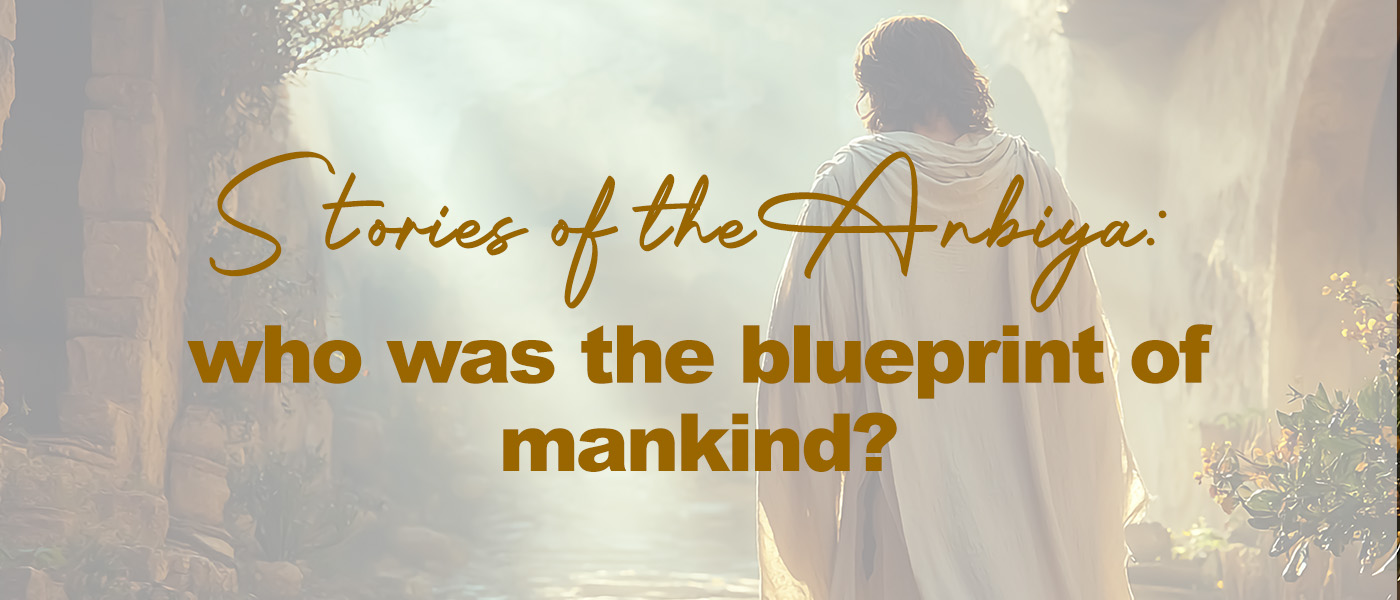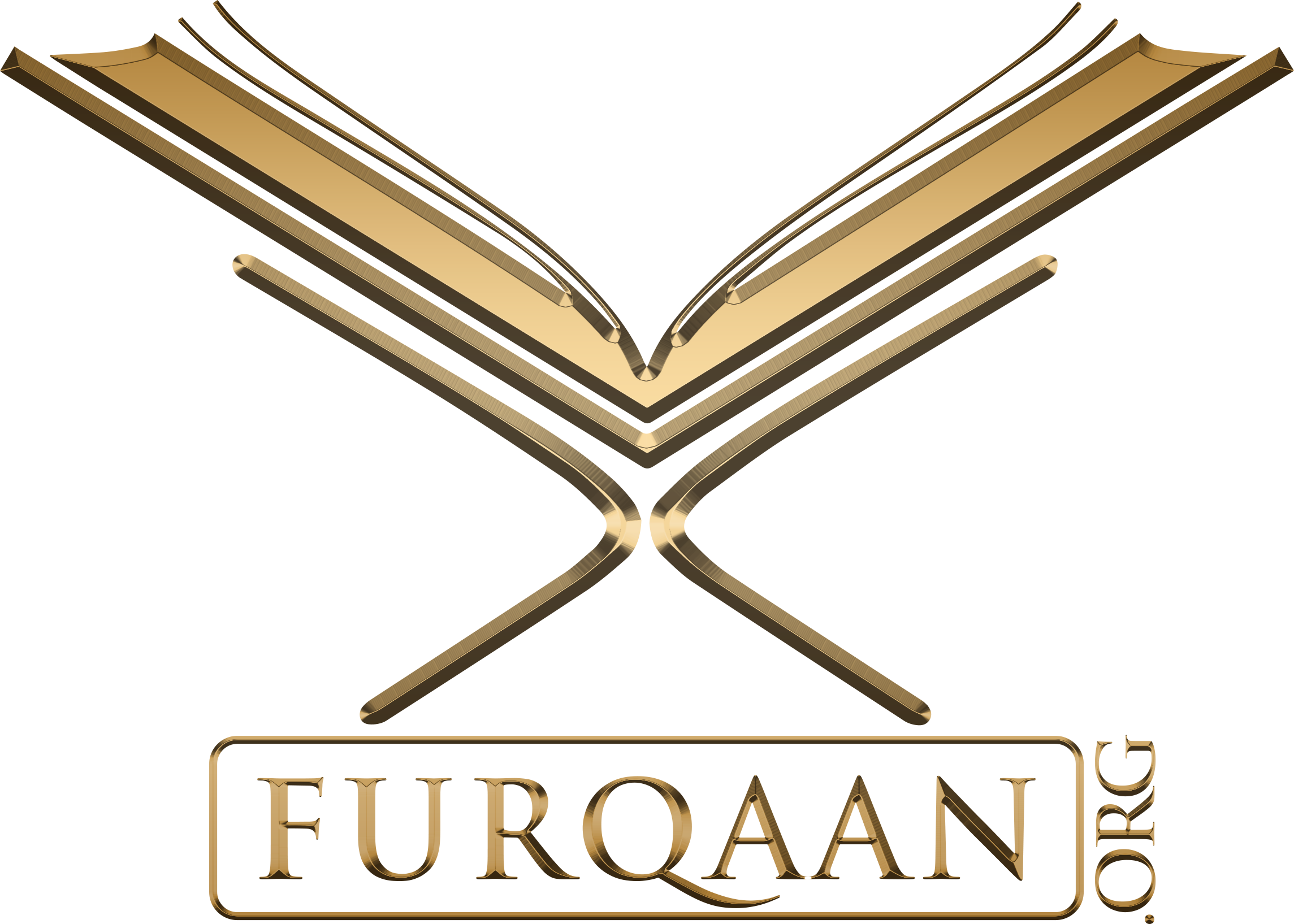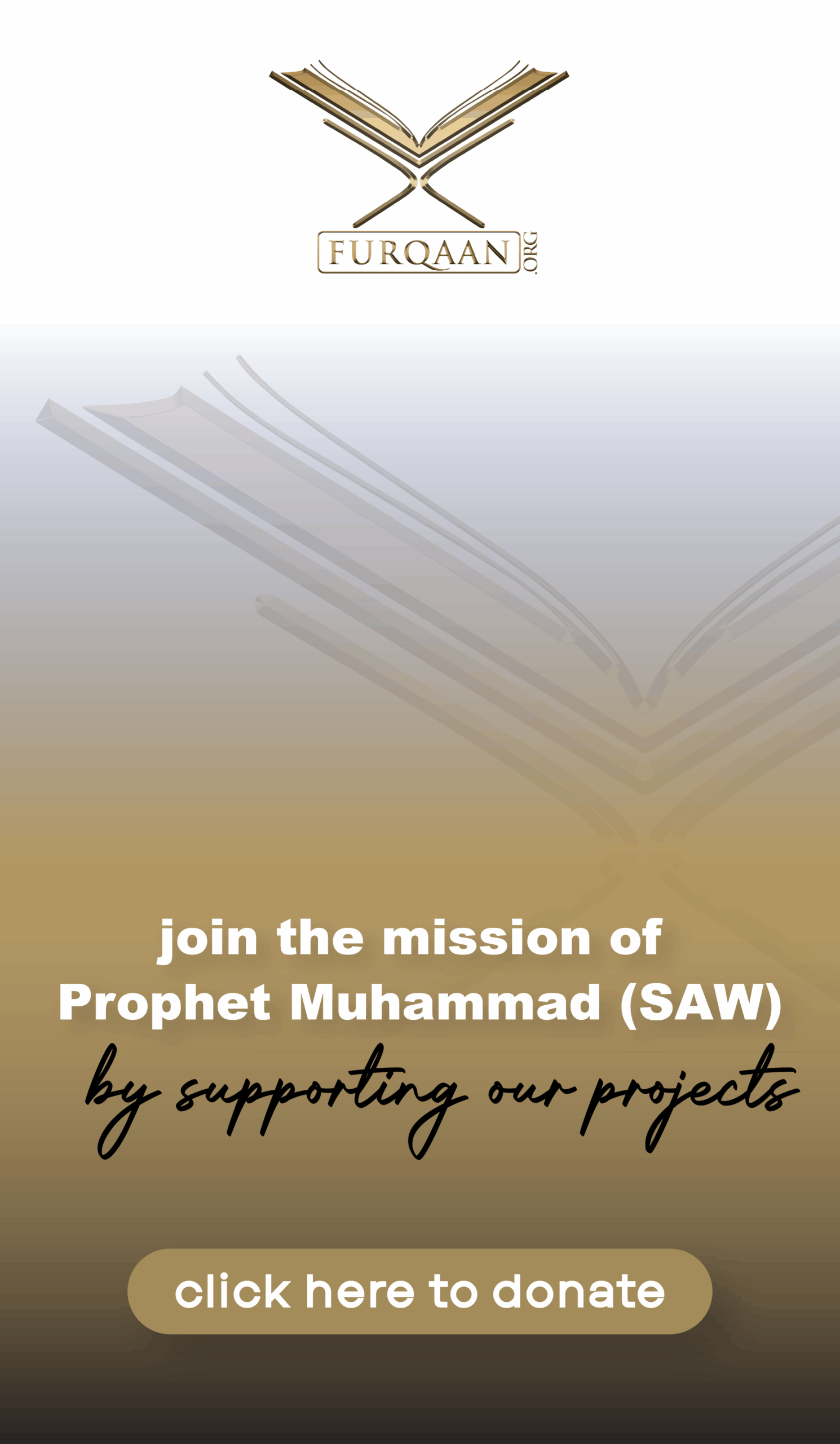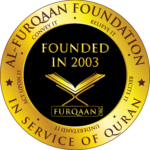
Stories of the Anbiya is a new series exploring the lives of the prophets mentioned in The Quran. Through these narratives, we aim to uncover not only the historical journeys of the prophets but also the timeless truths they reveal about the human soul, the struggle for justice, and the meaning of faith in a fractured world. This series is an invitation to revisit these lives with fresh eyes, and to see their stories echoed in our own.
Within the religion of Islam, Prophet Adam (as) indeed occupies a uniquely and powerfully foundational position where he is not just the first human being, but also the first prophet, the first father, and the first khalifah of Allah (SWT) upon this earth. His story is the story of humanity itself. It begins in the heavens, moves through divine knowledge and angelic awe, encounters deception and regret, and then unfolds on earth through resilience, responsibility, and return. Prophet Adam (as) is truly the beginning of every soul, every civilization, and every spiritual journey, and so we must take it upon ourselves to study and reflect upon the glorious and powerful life that he has led which carry abundant lessons for us to learn from. Prophet Adam (as) has been mentioned 25 times in The Quran, often in different contexts, yet each time he has been mentioned, an important purpose to note has always followed.
In Islamic theology, his creation was a deliberate act carried out by Allah (SWT). Within the Judeo-Christian framework, Prophet Adam (as) is usually cast as the “bearer of original sin”, but Islam has re-centered this narrative on mercy, learning, and accountability. Yes, Prophet Adam (as) made a mistake, but he also repented to the One who created him, and he was able to receive Allah’s (SWT) forgiveness and mercy. His error was certainly not “the be-all and end-all”, as many of us humans have come to accept. Rather, it showed the true nature of Allah’s (SWT) creations – that we are fallible, yet remain capable of attaining greatness.
As Muslims, when we speak about Prophet Adam (as), we are outlining the divine blueprint for human life. His story sets the tone for the struggle between good and evil, obedience and rebellion, divine mercy and human fragility. Prophet Adam (as) is the first to experience loneliness, temptation, parenthood, loss, and repentance which are all core experiences of human life. In this deep dive, we will not only explore the well-known events of his life – such as his creation, his time spent in Allah’s (SWT) Paradise, the deception of Iblis, his descent to earth, and the tragedy of his sons – but also the deeper meanings of his stories that shape our understanding of who we are and why we’re even here.
Prophet Adam’s (as) story isn’t limited to the story of the first man in creation, but it is the origin story to us all.
The creation of Prophet Adam (as)
Before the creation of man, a divine announcement was made. Allah (SWT) says in The Quran, “Remember when your Lord said to the angels, ‘I am going to place a successive human authority on earth.’ They asked Allah, ‘Will you place in it someone who will spread corruption there and shed blood while we glorify Your praises and proclaim Your holiness?’ Allah responded, ‘I know what you do not know.’” (The Clear Quran®, 2:30)

This verse sets the tone for what human existence is meant to be. It was not a random act or any sort of experiment, it was a purposeful act of creation that was imbued with meaning and trust. The term khalifah signifies someone that has been entrusted with authority, stewardship, and responsibility. Humanity, then, was not born from any sort of chaos, but from discipline and intention.
Prophet Adam (as) was created from clay which was dust mixed with water, shaped into the form of man, and then brought to life by the breath of Allah (SWT). The choice of natural material that Allah (SWT) selected to form the human body, is also deeply significant. Clay is humble, malleable, and grounded. It suggests that humans are both limited and adaptable, but the infusion of divine spirit elevated this earthen form into something sacred. This duality, earth and spirit, remains the core tension of the human experience. We are creatures of need and desire, yet capable of reflection and transcendence.
What then follows is a moment that marks humanity’s exceptional status. Revealed in The Quran, “He taught Adam the names of all things, then He presented them to the angels and said, ‘Tell Me the names of these, if what you say is true?’” (The Clear Quran®, 2:31)

This was an endowment by Allah (SWT) of knowledge, intellect, and capacity to categorize, abstract, and understand. Prophet Adam (as) was being honored not for his physical form, but for his mind and his soul, for his ability to learn, name, and know things. Knowledge, then, became the marker of superiority, and it is this divine gift that establishes humans as worthy stewards of the earth.
Allah’s (SWT) command to prostrate and the rebellion of Iblis
When Allah (SWT) presented Prophet Adam (as) to the angels and commanded them to prostrate, He (SWT) was not ordering this act so that the angels may worship him, but to give His khalifah the recognition and honor that he deserved. It was a bow to the divine wisdom of Allah (SWT) that had now manifested in creation. The angels, who are pure beings of light that never disobey and comply immediately, lowered their foreheads to the grounds of Jannah in sujood. However, one such angel among them deliberately refused. Iblis, who was made of smokeless fire instead of life, held a rank among the angels due to his devotion to Allah (SWT). Yet, when he was confronted with Prophet Adam’s (as) elevation, arrogance clouded his mind.
In The Quran, it is written, “Allah asked, ‘What prevented you from prostrating when I commanded you?’ He replied, ‘I am better than he is: You created me from fire and him from clay.’” (The Clear Quran®, 7:12)

In that moment, the first seeds of racism, classism, and spiritual arrogance were planted. Iblis did not just disobey, he outright challenged the hikmah of Allah (SWT). Because of this, he was cursed.
However, when Allah (SWT) ordered for his exile, he did not leave quietly. He openly made a declaration, a promise of war against the children of Prophet Adam (as), “He said, ‘For leaving me to stray I will lie in ambush for them on Your Straight Path.’” (The Clear Quran®, 7:16)

From that day onwards, his mission became clear: to mislead, deceive, and destroy. In this, the human struggle is set into motion which takes shape in the internal whispers that seek to distort truth and lure us away from our purpose.
The gift of knowledge from Allah (SWT)
One of the most striking honors that was given to Prophet Adam (as) was his access to divine knowledge. The Quran tells us, “He taught Adam the names of all things, then He presented them to the angels and said, ‘Tell Me the names of these, if what you say is true?’” (The Clear Quran®, 2:31)

Many ask what were these names? Scholars have interpreted this phrase in various ways. Some say that they were the names of all creatures, while others suggest they included the names of tools, natural elements, emotions, and even future prophets and their followers. However, whatever the specific objects were, what matters most is to understand that this teaching symbolizes a unique gift: a mark of divine trust.
This truly is a moment that highlighted humanity’s exaltation over the angels because of its intellectual capacity and moral agency. Unlike angels who are programmed to obey, humans must learn, wrestle, and choose based on logical reasoning. The gift of naming, whether it’s language, categorization, or reflection, is what makes us human. It’s how we build civilization, pass on wisdom, and connect deeply with our world and with Allah (SWT).
Prophet Adam’s (as) knowledge was not divorced from responsibility. It was not given so he could dominate, but so he could fulfill his role as khalifah. In Islam, knowledge must always be in service of justice, compassion, and obedience to Allah (SWT). Prophet Adam (as), as the first to receive this sacred trust, became the archetype for the scholar, the seeker, and the student. Through him, we inherit a legacy of learning for the sake of divine purpose.
Allah (SWT) creates the first woman of humankind
After Prophet Adam (as) was created and honored, a second being was created known as Lady Hawwa, or Eve in other Abrahamic faiths. In The Quran, her creation is not detailed as extensively as Prophet Adam’s (as), but it is no less essential to know. The Quran says, “He is the One Who created you from a single soul, then from it made its spouse so he may find comfort in her. After he had been united with her, she carried a light burden that developed gradually. When it grew heavy, they prayed to Allah, their Lord, ‘If you grant us good offspring, we will certainly be grateful.’” (The Clear Quran®, 7:189)

The purpose of her creation was for companionship and she is not to be treated like a footnote in human history. While some narrations, influenced majorly by Biblical traditions, claim that she was created from the rib of Prophet Adam (as), The Quran does not mention this. What matters in the light of The Quran is spiritual equality. Both were created by Allah (SWT), both were created in Paradise, and both were equally subject to divine command. There is no hierarchy of genders when it comes to the adaalat – courtroom – of Allah (SWT). The creation of Lady Hawwa then also reminds us that we are not meant to walk this earth alone.
Even in the highest realm with proximity to Allah (SWT) and the angels, Prophet Adam (as) experienced loneliness. It was only with Lady Hawwa that he found sakinah, and Allah (SWT) teaches us that human relationships are meant to complete one another, bring peace to one another, to walk the journey of life together, and to have shared responsibility and spiritual partnership.
The first mistake of mankind
In Jannah, Prophet Adam (as) and Lady Hawwa were given everything they could need, such as joy without any sort of hardship. However, with this freedom came one single prohibition, “We cautioned, ‘O Adam! Live with your wife in Paradise and eat as freely as you please, but do not approach this tree, or else you will be wrongdoers.’” (The Clear Quran®, 2:35)

This test was simple enough, but the important lesson here is about obedience, trust, and self-restraint.
Like we mentioned earlier, Iblis had made a vow to misguide the children of Prophet Adam (as), so then Prophet Adam (as) and Lady Hawwa began to hear whispers in their selves. Allah (SWT) says, “Then Satan tempted them in order to expose what was hidden of their nakedness. He said, ‘Your Lord has forbidden this tree to you only to prevent you from becoming angels or immortals.’” (The Clear Quran®, 7:20)

His approach wasn’t direct; it was subtle and highly persuasive.
Shaytan whispered, “Your Lord has forbidden this tree to you only to prevent you from becoming angels or immortals.” (The Clear Quran®, 7:20)

So when Prophet Adam (as) and Lady Hawwa partook of the tree, they immediately became aware of their nakedness. The Quran captures their feelings of shame poignantly, “So they both ate from the tree and their nakedness was exposed to them, prompting them to cover themselves with leaves from Paradise. So Adam disobeyed his Lord, and ˹so˺ lost his way.” (The Clear Quran®, 20:121)

Their first instinct was not defiance, but remorse. They had not disbelieved in Allah (SWT), but they did falter, and this is the distinction that is critical: sin in Islam does not erase faith, it tests it. The greatness of Prophet Adam (as) lies not in his perfection, but in his sincere repentance.
Prophet Adam (as) and Lady Hawwa are sent from Jannah down onto the earth
What happens after the mistake has been committed is often labeled as punishment. However, in Islam, the exile to earth wasn’t a punishment but a transition…a fulfillment of divine purpose because Allah (SWT) knew that this was going to happen regardless. Allah (SWT) declared to the angels, “I will place upon the earth a khalifah.” When Prophet Adam (as) and Lady Hawwa realized their mistake, they turned back to Allah (SWT) with words that have become immortalized in The Quran, “Our Lord! We have wronged ourselves. If You do not forgive us and have mercy on us, we will certainly be losers.” (The Clear Quran®, 7:23)

These are the first words of repentance ever uttered by human tongues. In response, Allah (SWT) didn’t shun them; He (SWT) accepted their repentance. The story of humanity, then, begins not with sin, but with forgiveness! This is the central difference between Islamic and Christian narratives of Prophet Adam (as). Islam rejects the notion of “original sin”. No human being inherits Prophet Adam’s (as) error. What we inherit is his legacy of repentance, learning, and return.
The life of Prophet Adam (as) on earth
The Quran tells us little about the immediate details of Prophet Adam’s (as) earthly life, but the early Islamic scholars and hadith narrations provide glimpses. He descended to earth on a Friday, according to some traditions, and was placed in the region around modern-day Sri Lanka. Lady Hawwa descended separately, and they were reunited later at a place known as ‘Arafah which is near Makkah. It was there that humanity’s first reunion took place which marked the beginning of life on earth. Prophet Muhammad (SAW) has said, “Allah created Adam in His image, sixty cubits tall…then said, ‘Go and greet those angels and listen to how they greet you, for that will be your greeting and the greeting of your offspring.’” (Sahih Bukhari)

Prophet Adam (as) and Lady Hawwa had many children among which were Qabil (Cain) and Habil (Abel), who would later carry out the great moral crisis in human history. The Quran says, “Relate to them in truth, O’ Prophet, the story of Adam’s two sons—how each offered a sacrifice: one’s offering was accepted while the other’s was not, so he threatened his brother, ‘I will kill you!’ His brother replied, ‘Allah only accepts the offering of the sincerely devout.’” (The Clear Quran®, 5:27)

Habil’s offering was accepted because it was given with purity of heart and sincere intention. Qabil’s, on the other hand, was rejected due to arrogance and resentment. Envy soon began to burn within him. In a fit of rage and pride, Qabil killed his brother – the first murder in human history. It was truly the desecration of life itself. The Quran later captures the magnitude of this act by declaring, “That is why We ordained […] that whoever takes a life […] it will be as if they killed all of humanity […].” (The Clear Quran®, 5:32)

Prophet Adam’s (as) grief was immense. Not only did he lose a son, but he witnessed the first manifestation of evil among his children. This story also serves as a stark reminder that the path of envy and unchecked anger always leads to destruction. After this great tragedy, Allah (SWT) sent a crow to show Qabil how to bury his brother’s body, which became the first introduction to burial rites. Despite this unfathomable calamity, Prophet Adam (as) remained steadfast in his mission. He called his descendants to worship Allah (SWT) alone, to live with honesty, justice, and compassion. He reminded them of the trust they bore as khalifahs of the earth.
He was taught to pray, to fast, to seek forgiveness, and he was the prototype of spiritual discipline, combining divine intimacy with human humility.
The final years of Prophet Adam (as)
According to authentic narrations, Prophet Adam (as) lived for nearly a thousand years. During his lifetime, he witnessed the growth of his family into tribes and communities. He observed both obedience and disobedience among his children, light and darkness intertwined which is a reflection of the human condition. It is narrated that, when the final moments of Prophet Adam (as) arrived, he remembered the promise made by Allah (SWT) that his life would be a trust and, his return, a meeting with the Divine. The angels descended, shrouded him, and performed the burial. Thus, even in his death, Prophet Adam (as) was an educator.
What are some lessons from his life that we can implement in society today?
Prophet Adam’s (as) story remains deeply relevant today. In an age of moral confusion and spiritual exhaustion, his life reminds us of the principles that define human worth. We are not just humans with organs, we are chosen people to bear a trust. Knowledge must be tied to humility. Freedom must be grounded in obedience. Power must always serve justice. From Prophet Adam (as), we learn that dignity does not lie in status or material achievement, but in moral awareness. His story reminds modern humanity that our origin is clay and our worth comes from the spirit breathed into us by God. His life calls us to balance intellect with submission, ambition with gratitude, and freedom with responsibility.
Ultimately, Prophet Adam (as) teaches us how to be human in the fullest sense—you will fall in life, but be sure to feel remorse, seek forgiveness, and rebuild with faith. His life is The Quran’s first and most profound lesson on what it means to be loved by a forgiving Creator despite our imperfections.
Dua
Oh Allah! Send Your peace and blessings upon our Prophet Adam (as). Elevate his rank in Paradise, and reward him on our behalf with the best reward You have ever given a prophet on behalf of his nation.
Grant us the ability to follow his path in repentance and obedience, humility and sabr.
Keep our hearts firm upon Your worship as You kept his heart firm, and unite us with him in the Gardens of Bliss.
Ameen, Ya Rabb!


